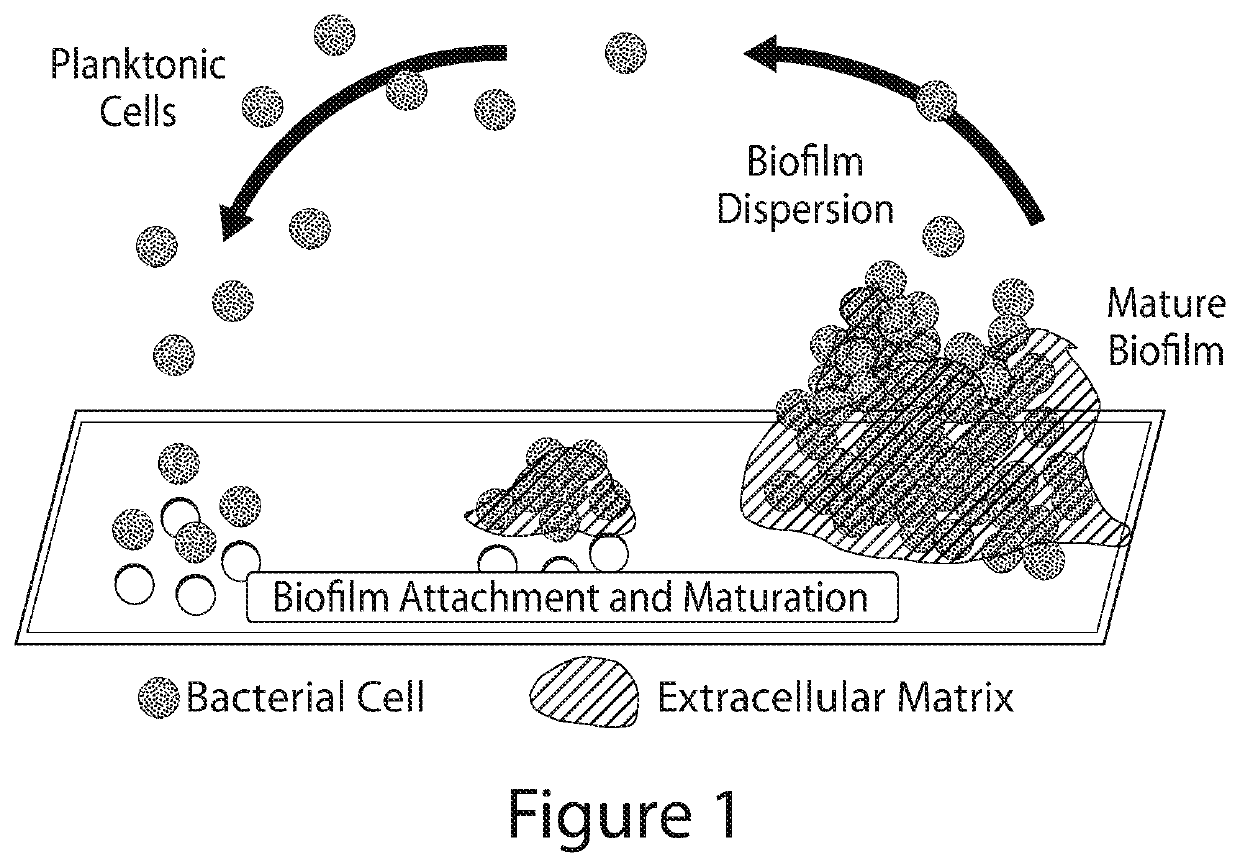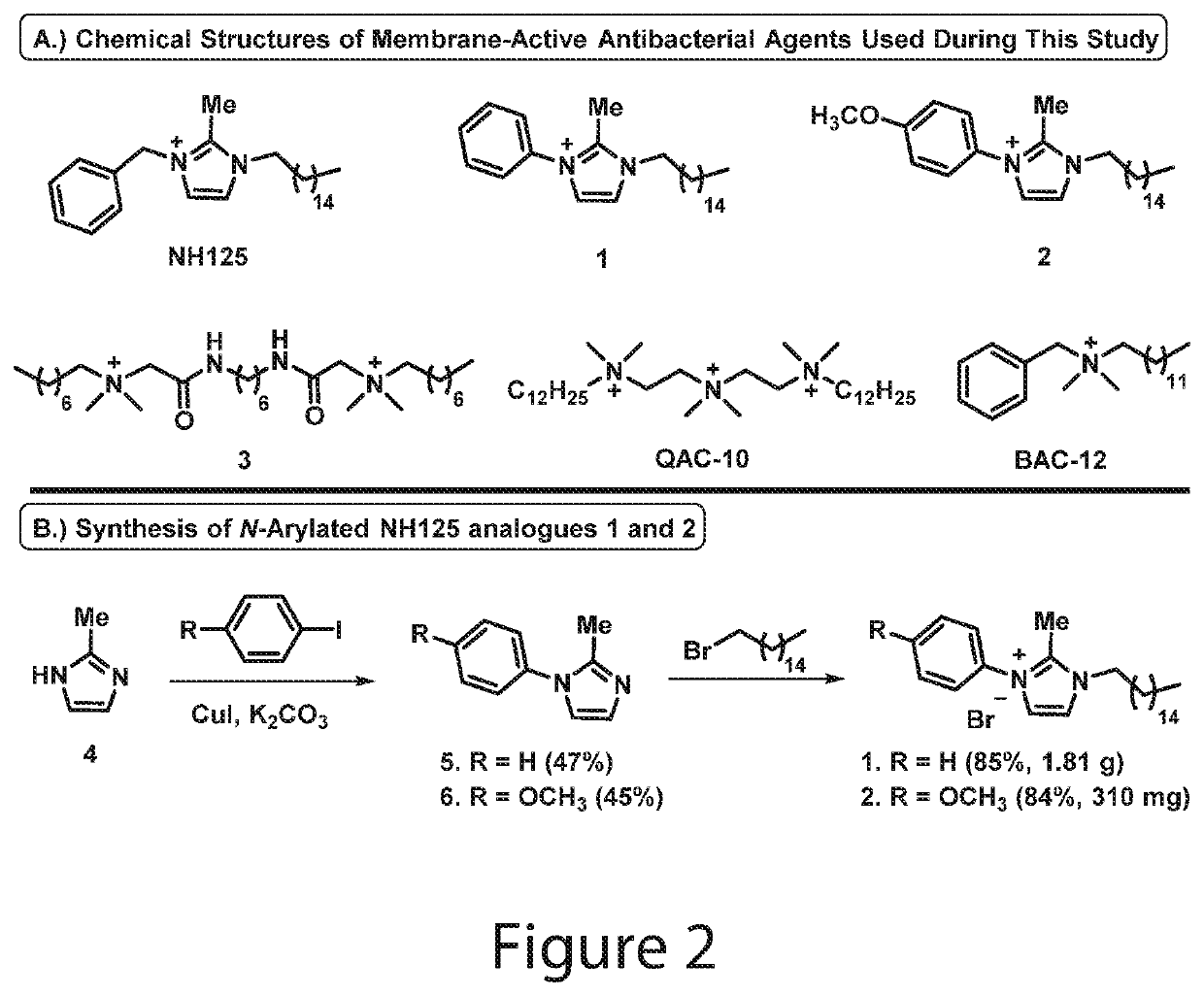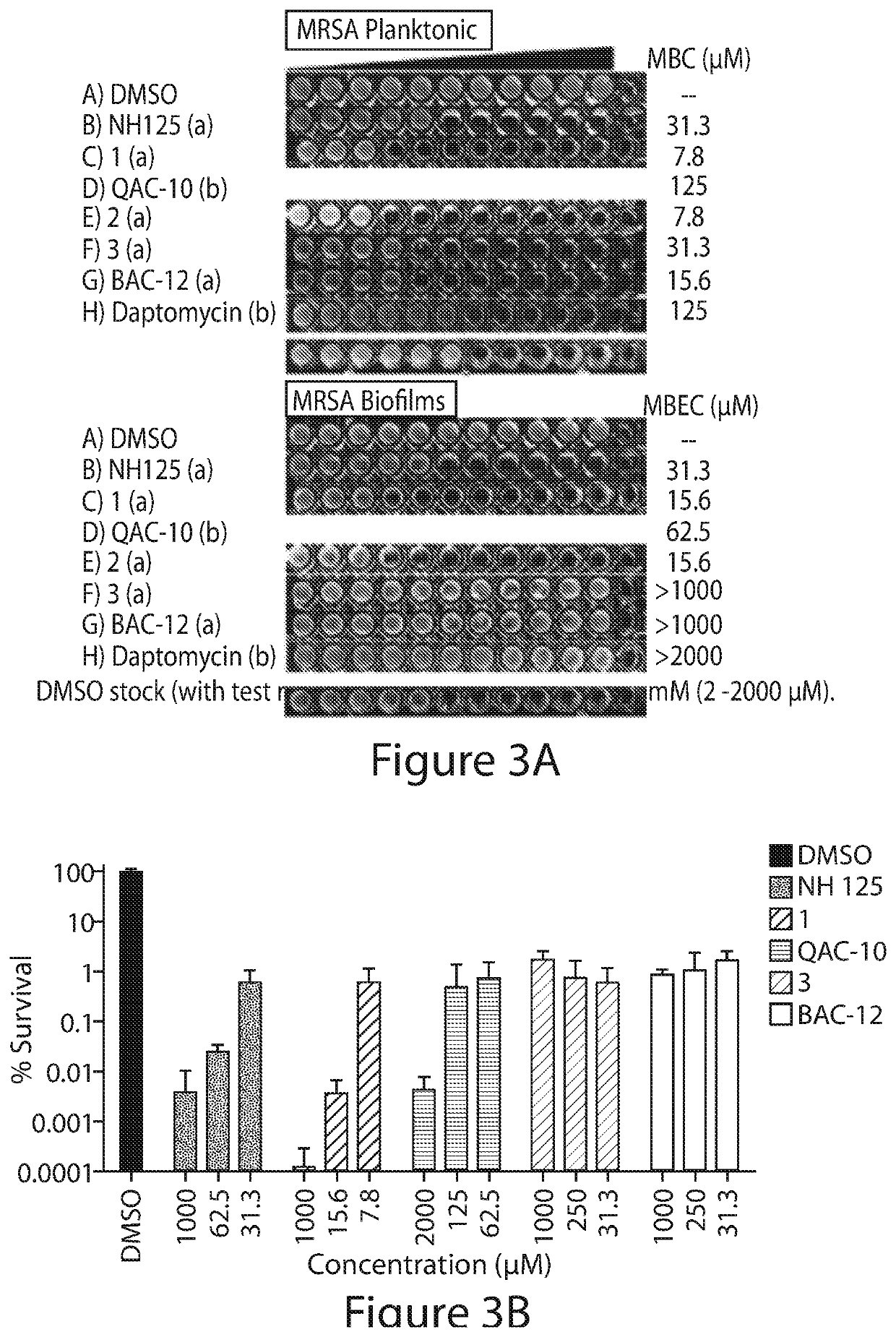N-arylated analogues and uses thereof
- Summary
- Abstract
- Description
- Claims
- Application Information
AI Technical Summary
Benefits of technology
Problems solved by technology
Method used
Image
Examples
example 1
Procedures and Characterization Data
[0288]
Synthesis of 2-methyl-1-aryl-1H-imidazole 5
[0289]To a stirring solution of 2-methyl-1H-imidazole 4 (800 mg, 9.74 mmol) in 6 mL anhydrous dimethyl sulfoxide under argon was added iodobenzene (1.09 mL, 9.74 mmol), copper(I) iodide (185 mg, 0.97 mmol) and anhydrous potassium carbonate (2.69 g, 19.49 mmol). The reaction mixture was then heated to 130° C. and allowed to stir for 48 hours in a sealed tube. Following completion of the reaction, the mixture was transferred to a separatory funnel containing ethyl acetate (200 mL) and the crude product was washed with water (4×40 mL) and brine (2×30 mL) before the organic layer was collected and dried with anhydrous sodium sulfate, filtered, and concentrated in vacuo. The product was purified via flash column chromatography using hexanes:ethyl acetate (1:1 to 1:4) to elute pure 2-methyl-1-phenyl-1H-imidazole 5 as a clear oil (730 mg, 47%).
[0290]Yield: 47% yield; 730 mg of 5 was isolated as a clear oil...
example 2
l Assays of Exemplary Compounds
[0369]Bacterial strains used during these investigations include: methicillin-resistant Staphylococcus aureus (Clinical Isolate from Shands Hospital in Gainesville, Fla.: MRSA-2; ATCC strain: BAA-1707) methicillin-resistant Staphylococcus epidermidis (MRSE strain ATCC 35984), vancomycin-resistant Enterococcus faecium (VRE strain ATCC 700221), Acinetobacter baumannii (ATCC 1794), Pseudomonas aeruginosa (PAO1), Klebsiella pneumonia (ATCC 13883) and Escherichia coli clinical isolate (UAEC-1). Other bacterial strains used include methicillin-sensitive Staphylococcus aureus ATCC 29213, methicillin-resistant Staphylococcus aureus ATCC MRSA BAA-44 and MRSA BAA-1707, Clinical Isolates of S. aureus, including MRSA strains, from Shands Hospital, Gainesville, Fla.: MRSA-1, MRSA-2, SA-129, SA-138, SA-147, SA-156, methicillin-resistant Staphylococcus epidermidis (MRSE, ATCC 35984), vancomycin-resistant Enterococcus faecium (VRE, ATCC 700221), Pseudomonas aeruginosa...
example 3
n of Exemplary Compounds in Kinetic Killing Experiments
[0376]The panel of membrane-active compounds was also evaluated head-to-head at 50 μM against MRSA BAA-1707 stationary cultures in kinetic killing experiments. Stationary cultures of S. aureus have elevated populations of metabolically dormant persister cells36,37 and using this experiment, we could get multiple early time points to see if 1 and 2 were rapid killers of MRSA persister cells. The entire panel reduced the number of viable stationary cultures after 24 hours; however, 1 and 2 were the only compounds to elicit a rapid killing effect of 4-logs (99.99% killing of stationary cells) in 30 minutes and >5-logs after 90 minutes. The remaining compounds on the panel, showed very little activity at 30 minutes and only NH 125 showed ˜1-log reduction of stationary MRSA cells after 90 minutes. The rapid killing of stationary MRSA cultures with 1 and 2 was sustained for 6 hours and no viable MRSA cells could be found at 24 hours u...
PUM
 Login to View More
Login to View More Abstract
Description
Claims
Application Information
 Login to View More
Login to View More - R&D
- Intellectual Property
- Life Sciences
- Materials
- Tech Scout
- Unparalleled Data Quality
- Higher Quality Content
- 60% Fewer Hallucinations
Browse by: Latest US Patents, China's latest patents, Technical Efficacy Thesaurus, Application Domain, Technology Topic, Popular Technical Reports.
© 2025 PatSnap. All rights reserved.Legal|Privacy policy|Modern Slavery Act Transparency Statement|Sitemap|About US| Contact US: help@patsnap.com



